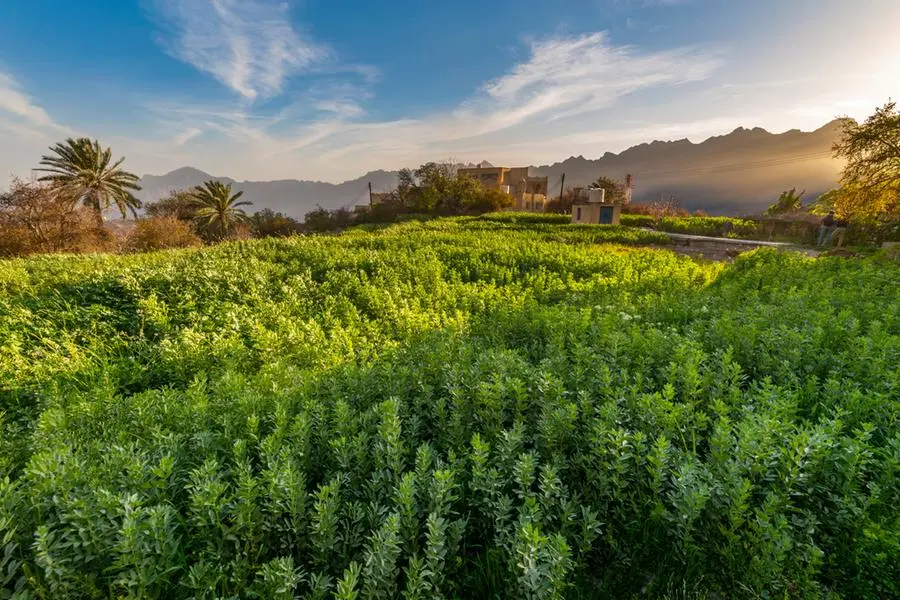PHOTO
Muscat – H E Dr Saud bin Hamoud al Habsi, Minister of Agriculture, Fisheries and Water Resources, stressed the need to broaden the agriculture and water resources sector at the opening of Food Security Laboratory 2024 on Sunday.
The event was organised by Ministry of Agriculture, Fisheries and Water Resources (MAFWR) in collaboration with Oman Vision 2040 Implementation Follow-up Unit, National Programme for Investment and Export Development (Nazdar), the National Employment Programme and private sector companies.
H E Habsi highlighted the laboratory’s goals, which include enhancing local and foreign investment in the food security sector to achieve the objectives of Oman Vision 2040.
Additionally, it aims to develop investment opportunities with local added value, promote digital transformation for sustainable food and water security, and identify challenges to improve institutional performance.
H E Habsi stressed the importance of opening new investment opportunities and creating a favourable environment for investors. He also underscored the establishment of nurseries in every governorate with the aim of developing a comprehensive system of nurseries that meets local demand and reduces reliance on imports.
Hamoud bin Hamad al Rashidi, supervisor of the laboratory’s technical team, outlined its focus on five key pillars. These include a digital transformation pillar aimed at launching the Tharwat platform with ten electronic services and the Silal application; a strategic planning pillar to adopt the 2025 strategic plan and enhance project goals; an investment pillar will support strategic programmes with investment projects; and enablers pillar will launch initiatives that facilitate investments in the food security sector.
The last pillar – local content – seeks to maximise economic returns from natural resources by creating investment opportunities along value chains and empowering local suppliers and small and medium enterprises. It also aims to activate initiatives that develop suppliers and the Omani workforce.
Rashidi emphasised the significance of an import substitution initiative, which aims to establish a timetable to raise self-sufficiency of targeted goods to 75%.
Dr Yousef bin Mohammed al Riyami, Director General of National Centre for Statistics and Information, reported that total annual household food consumption reached RO3bn in 2023. Average monthly expenditure was RO757 for Omanis, with 28% allocated to food, and RO361 for expatriates, with 22% spent on food.
He also informed that approximately 39,655 Omanis are engaged in crop cultivation and animal husbandry, while 22,485 are employed in fishing and aquaculture. Food imports account for 12.8% of total imports.
According to 2023 data, self-sufficiency rates are as follows – 158% for fish, 97% for dates, 92% for milk, 83% for tomatoes, 68% for eggs, 60% for poultry, 49% for watermelons, 46% for red meat, 39% for garlic, 31% for lemons, 29% for mangoes, 25% for bananas, 14% for onions, and 9% for potatoes.
© Apex Press and Publishing Provided by SyndiGate Media Inc. (Syndigate.info).Tridwip





















